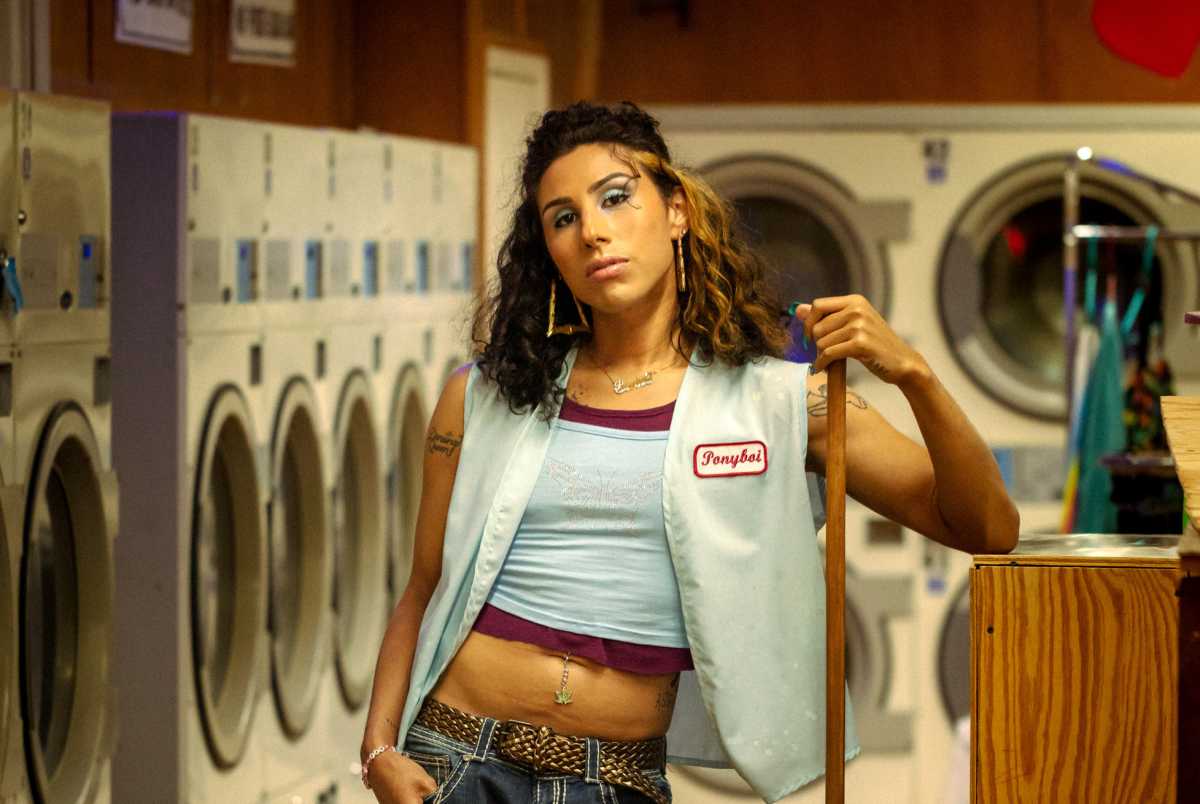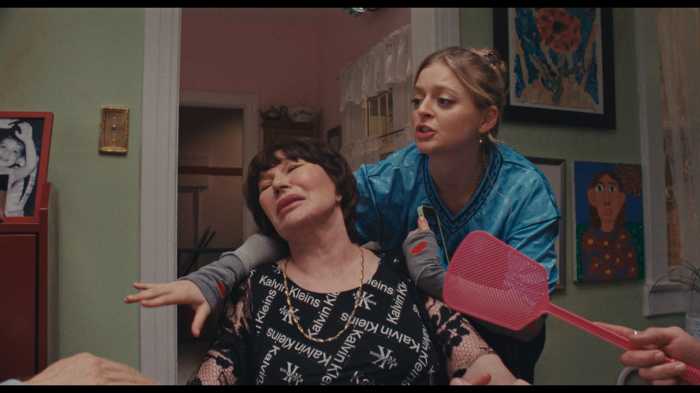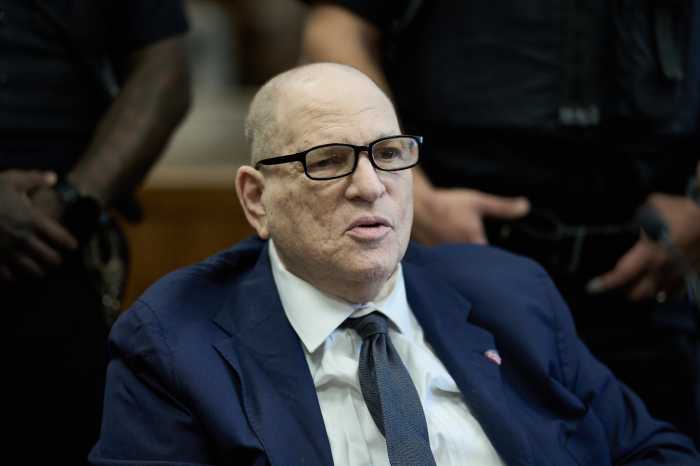Set on Valentine’s Day in the 2000s, Esteban Arango’s “Ponyboi” is a swirl of sex, drugs, violence, heightened emotions and, most of all, color. The cinematography’s neon extremes mirror the characters’ feverish whirlwind. In only one scene, where Ponyboi (River Gallo) visits his parents’ house in the morning, does the lighting look realistic. The drama is set among garish blue, yellow and red lights, with hearts drawn on mirrors in lipstick.
Radio news broadcasts establish the time frame: Rudy Giuliani is still New York’s mayor, and Jim McGreevey — who became the first out gay governor in the US ahead of his resignation — is still New Jersey’s governor. Inside a parked truck, sex worker Ponyboi services a client. An intersex person who uses he/him pronouns, he presents as a woman. When he finishes, he rushes back to a laundromat. There, he meets his friend Angel (Victoria Pedretti), who dates his pimp Vinny (Dylan O’Brien).
While in the laundry, Ponyboi meets a mysterious middle-aged man in a cowboy hat (Murray Bartlett). In a vision of ruggedly handsome masculinity, the stranger is attracted to him, and they flirt by singing Bruce Springsteen’s “I’m On Fire” to each other. (Bartlett’s character flashes in and out of the film, suggesting that he could be Ponyboi’s fantasy of a healthier version of manhood than his father and Vinny have offered.) Vinny has a new sideline: cooking meth and getting sex workers to sell it. His lab prowess is dubious: Ponyboi takes a sniff and remarks that it reeks of Pine-Sol. When a gangster and Ponyboi smoke it and then have sex, he ODs and dies, leading Ponyboi to a crisis. This is compounded by a call Ponyboi receives from his mother, informing him that his estranged father, who threw him out of the house, is dying.
“Ponyboi” toys with clichés across several genres. How many film noir anti-heroes had to go on the run after accidentally killing someone? LGBTQ cinema and literature has long been fascinated by sex workers’ lives, as well as stories about re-connecting with queerphobic families. The gangsters could’ve strayed here from a knock-off of “The Sopranos.” The scenes with Vinny don’t do much more than establish the danger Ponyboi has found himself in. A wanna-be thug, trying to impress Ponyboi with his hysterically amateurish rapping, he would be ridiculous if he weren’t brutal. Ponyboi accurately calls him a closeted loser. Even the other sex workers approach “hooker with a heart of gold” stereotypes. One suspects that these genre elements of “Ponyboi” had to be present for the film to be commercially viable at all, but they’re pretty disposable.
The most intriguing elements of “Ponyboi” are smuggled into these tropes. Despite his looks, Ponyboi’s clients are not-so-secretly attracted to the fact that he doesn’t fit the gender binary. Yet the outside never stops demanding that he conform. His clothes conceal a flat chest. Vinny pressures him to get breast implants and take estrogen. Ponyboi thinks that he wants to take testosterone, but an ugly bout of transitional sex with a pharmacist leads him to wonder about this goal. Unsubtly, flashbacks connect Vinny with Ponyboi’s father. From time to time, he disassociates, suddenly triggering images of abuse in his past.
In addition to portraying Ponyboi, River Gallo wrote the script and co-produced the film. While they didn’t direct it, it’s a deeply personal project for them. Like their character, they are both intersex and Salvadoran-American. (In 2023, they appeared in the documentary “Every Body.”) As a child, they were forced into cosmetic surgery and testosterone use, with no say in the matter, only discovering that they were intersex at 27.
“I want ‘Ponyboi’ to be the film I needed when I was younger and felt so lost,” they wrote. “I firmly believe ‘Ponyboi’ is poised to start a societal revolution by being the first narrative feature film created by and starring an intersex person to enter the popular culture.” Despite this breakthrough in representation, “Ponyboi” feels compromised, burying its protagonist’s emotions beneath evocations of basic cable fare. The film’s look carries more weight than its characters: It imagines New Jersey’s sleaziest backstreets on fire with color, but can’t quite express the feelings they contain.
“Ponyboi” | Directed by Esteban Arango | Fox Timeline Studios/Gathr | Opens June 27th at AMC Village 7





































